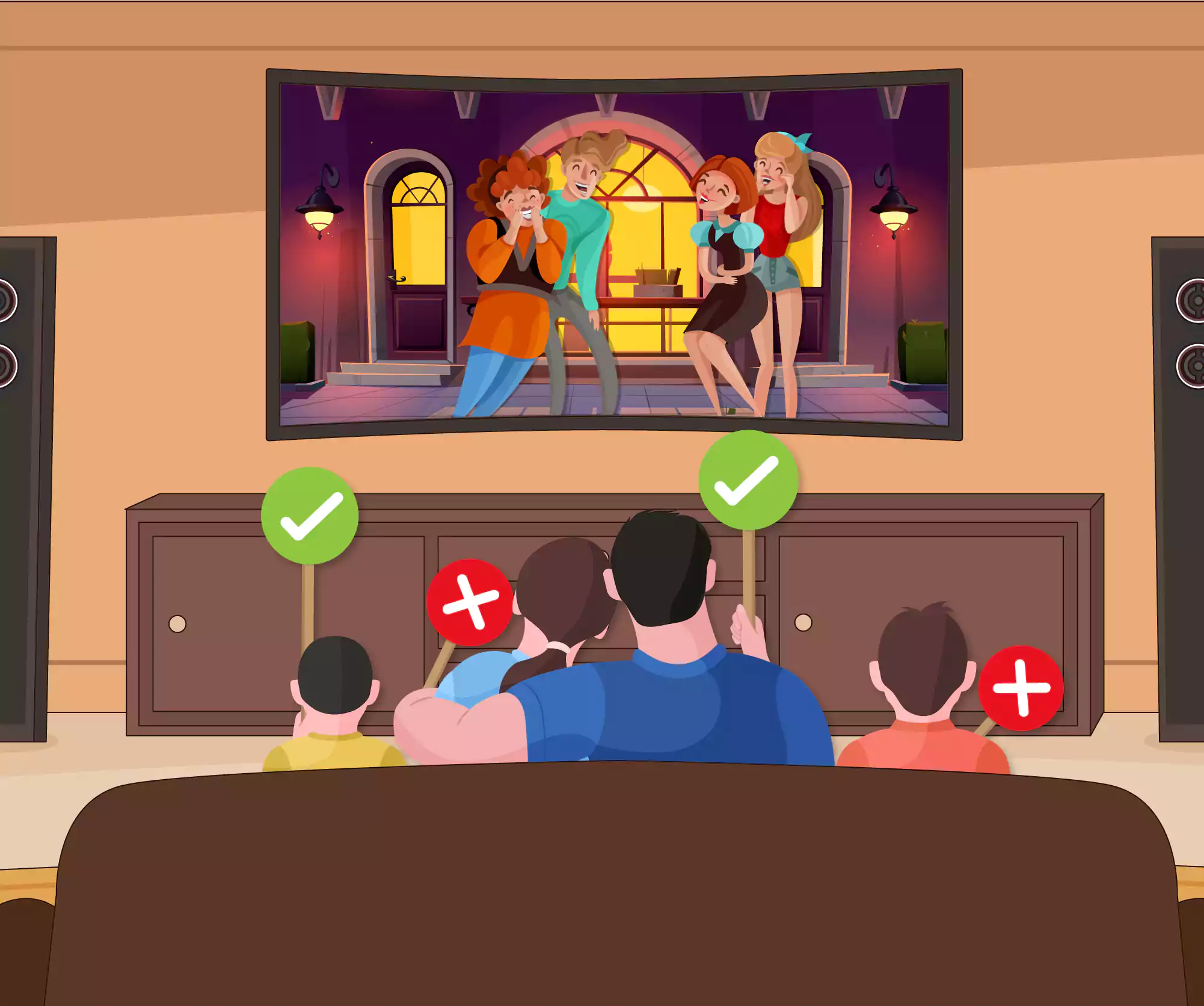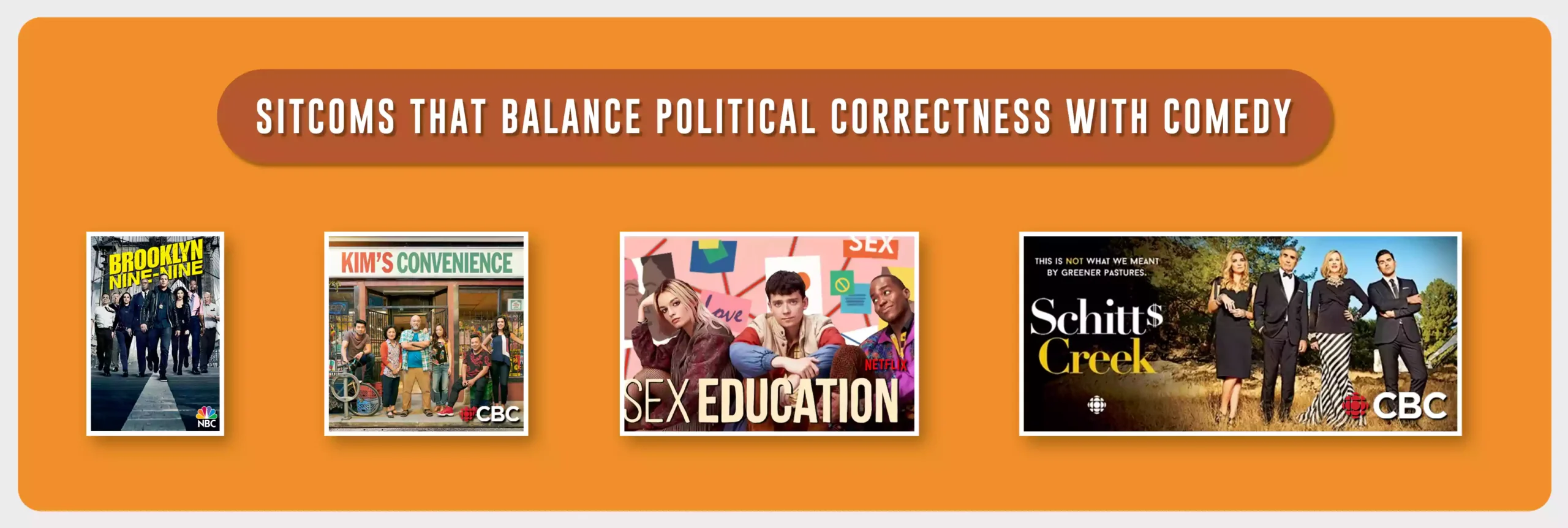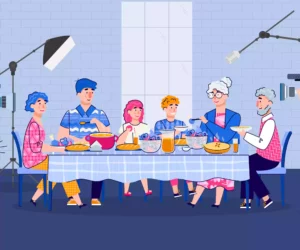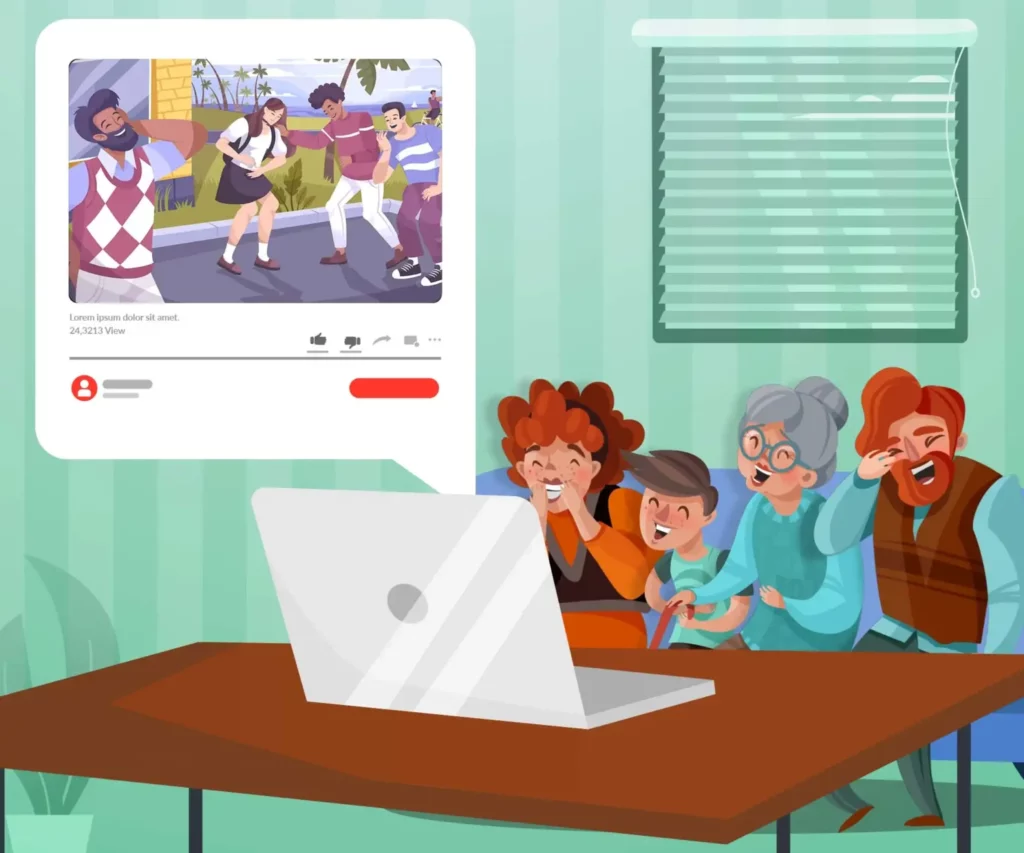
Sitcoms need to be funny. They can have a message, take a stance, or not do any of that. But the ‘funny’ is important. A typical comedy show is 20-30 minutes. During this time, its makers must provide a well-woven storyline that gets a good laugh. Without live audiences and laugh tracks (which self-respecting show still has a laugh track?), the pressure is on to be appropriately witty and hilarious. That said, viewers continuously redraw the line between what is funny and offensive. A show must now be perfectly inoffensive to survive internet criticism while being hilarious enough to endure in ratings. So how far is too far to go for a laugh? Or is political correctness ruining TV shows?
The lack of political correctness is funny
Mind Your Language is a British show from the 1970s and 80s where the characters are just a bunch of racial stereotypes. Of course, this show would NEVER see the light of day today. Still, it was pretty funny, the humour stemming from the interaction of these drastically diverse characters and the peculiarities of the English language itself.
Freedom of speech and expression is not just a significant pillar of democracy but a driving force for comedy. Mocking society, norms, people—it’s what comedy does best. And in doing so, it brings forth an alternate worldview or just a silly laugh. Politically incorrect humour can be a commentary on the near-utopian, impractical, ambiguous ideals that every show is now supposed to adhere to while being hilarious at the same time.
Shows like Family Guy and South Park, as well as comedians like Dave Chappelle and Bill Burr, have come under fire for being insensitive, but this is part of their appeal. Setting boundaries to comedy is nothing short of censorship—irreverence is not something you can cancel. The problem arises if the show does not understand the lines that it’s crossing. With the dawn of the woke culture, that’s not the case anymore. Comedians cross the lines intentionally to etch the trajectory of the joke into your psyche and illicit new thoughts and responses. More importantly, they do it because it’s funny and what they want to do. As Chappelle once said, ‘say it anyway.’
How far is too far?
The instances we must take issue with are much more vicious. Back in 2018, they revived the old show, Roseanne. The viewers gave its star Roseanne Barr a standing ovation in ratings. Then, it all abruptly ended after she tweeted an overtly racist comment about Valerie Jarrett, senior advisor to President Barack Obama. The new installation of Roseanne had also previously come under fire for airing an Islamophobic episode. There was no room on ABC (as there wouldn’t be on any other major network) for this kind of far-right attitude.
However, there is a definite difference between what is considered ‘offensive’ and what could constitute hate speech or racism. As a new generation starts binge-watching old sitcoms, fan-favourite shows are coming under fire for their lack of political correctness. While accurate representation has gained momentum recently, old shows don’t need to be cancelled. People must view them within their historical context. We can no longer have characters like Fez from That 70’s Show. At the time, he was an ambiguously foreign, lovable kid who seemed to be an innocent, if stereotypical character representing no race in particular. But just because that sort of thing wouldn’t fly now doesn’t mean we must shun the character entirely. Shows like Everybody Loves Raymond, The Office, and Friends still deserve to be loved, even as they make you cringe every once in a while.
The entertainment industry, consisting primarily of artists, has always been opposed to conservative ideals and pushed the boundaries of what is considered normal or acceptable. But, what this means at different stages of history and what sort of representation a show wants to focus on may vary. Modern Family, for instance, has an all-white cast. Still, that show normalised the concept of a two-father family like none before.

Political correctness is also funny
When people say wokeism is ruining everything, they aren’t entirely wrong. It might be because creators don’t know how to balance the show’s actual character with the political message they’re trying to convey. When done right, representation is received well. Brooklyn Nine-Nine, for instance, deals with topics like race, gender, homophobia, and the need for police reform. They manage it all heartwarmingly but not lacking in the Nine-Nine’s usual shenanigans. For all the politically incorrect bits, there’s the resident pervert/glutton/nitwit, Hitchcock. His crudeness elicits disgust from his colleagues and provides us with a few easy laughs.
Sitcoms use this method to tell non-PC jokes in a PC way—they take someone who isn’t politically correct and then pair them with someone who is. This juxtaposition allows for both kinds of humour while also showing that the non-PC character is just being dumb, i.e. what they’re saying is not acceptable. Let’s also consider Black-ish for a moment. The show has managed to maintain the comic element and keep it light while addressing race and gender issues. The Hitchcock equivalent on this show is Dre’s boss, Leslie (typical WASP male), his colleague, Josh (same), and their next-door neighbour, Janine. However, based on the subject matter, this person could be Dre’s mother, Ruby, or Dre himself.
Political correctness that goes beyond tokenism
A show of diversity without substance does not count as representation—there has always been a ton of that. The Good Place is a show that went beyond tokenism with a diverse cast. The show’s unique nature allowed these characters to transcend their cultural contexts. Some shows evolved in transit. For instance, in New Girl, Winston Bishop initially seemed to be a replacement for Coach, the original token Black guy. The writers caught themselves in time, and Winston quickly evolved into a nerdy, nutty (kinky) character with a definite arc.
As for Asian representation, even though characters like Apu from The Simpsons are firmly embedded in America’s psyche, they have now been replaced. The new wave brought Mindy Kapoor from The Office, Tom Haverford from Parks and Recreation, Raj Koothrappali from The Big Bang Theory, and CeCe Parekh from New Girl. In addition, shows like Fresh Off the Boat, Kim’s Convenience, and Never Have I Ever provide ethnic minorities with a venue for self-directed mockery and self-deprecating humour.
So…what’s the ruling?
It would seem there are two sides to this coin. On the one hand, trying to run a show that is too politically self-conscious without upsetting anybody at any time is neither possible nor very funny. On the other hand, if the only way you can get a laugh is by being racist, sexist, or xenophobic, you aren’t funny. In this author’s humble opinion, political correctness neither makes nor breaks a show—a sitcom can be politically correct and funny if its intention is not to preach. Conversely, a politically incorrect show which doesn’t resort to downright hate speech can also be funny if taken with a grain of salt.


